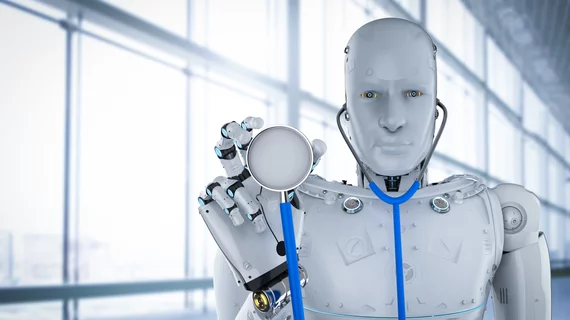AI model outperforms researchers’ ‘wildest dreams’ with accurate heart attack assessments
Researchers have developed a new artificial intelligence (AI) model capable of evaluating electrocardiogram (ECG) results and identifying signs of occlusion myocardial infarction faster than other modern techniques. The group shared its findings in Nature Medicine, noting that the model’s performance was much better than expected.[1]
“When a patient comes into the hospital with chest pain, the first question we ask is whether the patient is having a heart attack or not. It seems like that should be straightforward, but when it’s not clear from the ECG, it can take up to 24 hours to complete additional tests,” lead author Salah Al-Zaiti, PhD, RN, an associate professor of emergency medicine and cardiology at the University of Pittsburgh, said in a prepared statement. “Our model helps address this major challenge by improving risk assessment so that patients can get appropriate care without delay.”
Al-Zaiti et al. trained their algorithm using ECG data from more than 4,000 patients who presented with chest pain at one of three Pittsburgh hospitals. They validated the model using data from nearly 3,300 patients seen at a different health system.
The AI model was put up against three different “gold standards” for evaluating heart patients: the interpretations of experienced physicians, commercial ECG algorithms and the HEART score for major cardiac events. Overall, when combined with “the clinical judgement of trained emergency personnel,” the authors found that their algorithm outperformed all three alternatives, accurately reclassifying one in three chest pain patients as either facing a low, intermediate or high risk.
“In our wildest dreams, we hoped to match the accuracy of HEART, but we were surprised to find that our machine learning model based solely on ECG exceeded this score,” Al-Zaiti said in the same statement.
“This information can help guide emergency medical services (EMS) medical decisions such as initiating certain treatments in the field or alerting hospitals that a high-risk patient is incoming,” added co-author Christian Martin-Gill, MD, MPH, chief of the EMS division at the University of Pittsburgh. “On the flip side, it’s also exciting that it can help identify low-risk patients who don’t need to go to a hospital with a specialized cardiac facility, which could improve prehospital triage.”
The researchers plan to study their AI model closer, optimizing its deployment and even working to integrate it into hospital command centers. The ultimate goal is for it to evaluate ECG data gathered from EMS specialists and then deliver real-time assessments that can help guide treatment decisions, including early activation of the cath lab.
Other co-authors included Ervin Sejdic, PhD, with the department of electrical and computer engineering at the University of Toronto; Stephen Smith, MD, of Hennepin Healthcare; and many others.
Read the full study here.

